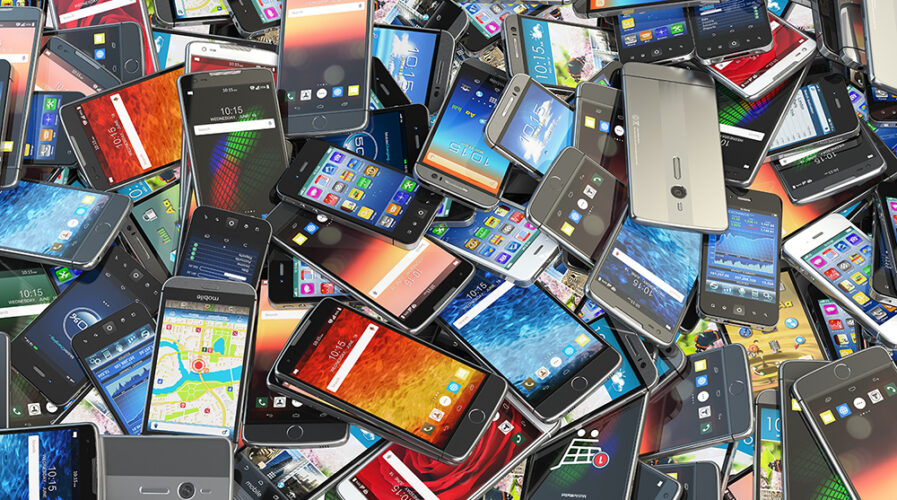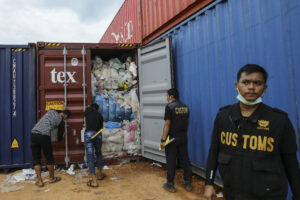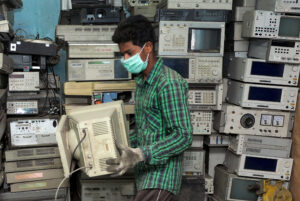
Can e-waste management ensure a sustainable environment?
As demand for more gadgets and IoT devices increases, e-waste management continues to be a global problem. While newer devices are designed and built with sustainability in mind, many legacy gadgets and infrastructures aren’t.
Most organizations invested heavily in digital hardware infrastructure in the 90s and 2000s. However, with cloud adoption and digitalization becoming rampant, most of these infrastructures have been deemed obsolete and often marked for disposal.
From old mobile phones to laptops to large monitors and hard drives, both consumers and enterprises replace them after an amount of time. Some legacy devices and infrastructures can be adopted to support modern technologies. Yet, the amount of e-waste generated still continues to increase yearly.
According to the Global E-waste Monitor 2020, a record 53.6 million metric tonnes of e-waste was generated worldwide in 2019, and it is expected to reach 74 metric tonnes by 2030. Asia generated the highest quantity of e-waste in 2019 at 24.9 metric tonnes.
While developed nations are now taking e-waste seriously by ensuring proper disposal, most middle and low-income countries do not yet have a proper e-waste infrastructure. In some countries, e-waste management is absent.
E-waste management in Malaysia
In Malaysia, only 25% of e-waste is recycled, necessitating more proactive measures to be taken to prevent a further detriment to the country’s natural landscape.
Sadly, the high demand from local industries in Malaysia for e-waste has made the country seem like a dumping ground for the world’s e-waste. Realizing the potential effects of unmanaged e-waste, Malaysia has been taking drastic steps in dealing with the issue.

(Photo by ANDARU / AFP)
The Department of Environment reported that 75 containers containing e-waste were detected entering the country to be processed illegally and not in an environmental-friendly manner from 2018 to November 2019. The containers have since been sent back to their countries of origin.
To help Malaysia deal with e-waste, Reebelo, a trusted marketplace for refurbishing electronics is on a mission to solve the rising kiloton e-waste problem. Branding itself as an eco-friendly player in the consumer market, Reebelo is on a mission to save 60 tonnes of e-waste by 2022, one device at a time.
Having worked on e-waste management in Singapore, Australia, and New Zealand, Reebelo partners with certified tech refurbishment companies, locally and regionally. The e-commerce marketplace enables consumers to buy refurbished smart devices like smartphones, tablets, and notebooks, among others.
The company has also just launched its buyback program in Malaysia, where consumers can sell their old and unused devices back to Reebelo’s partners, where the devices are then refurbished and given a new lease on life.
“Our e-waste problem is growing at an exponential rate. Left unattended, it is only going to turn into an immovable mountain, causing hazardous consequences,” said Shen Ong, Country Director of Reebelo Malaysia.
Ong added that they are giving e-waste a second life, by reviving electronics and turning them into new assets.
“Our goal at the end of the day is to change how people use their gadgets and their perception about refurbished devices. We want to empower consumers to adopt more eco-friendly habits in the long-term when buying technology,” explained Ong.

(Photo by Manjunath Kiran / AFP)
A collective effort
In changing the way consumers view refurbished technology, Reebelo aims to reduce the rate at which e-waste is created without compromising the quality of all devices sold. All refurbished devices have undergone thorough testing and cleaning to ensure that they are functioning and free of defects.
Apart from Reebelo, there are other startups and large enterprises that are also looking at reducing e-waste and managing the problem. For example, Lenovo offers recycling and environmentally conscious disposal services. These services are free for both consumers and businesses and will receive a competitive quote based upon the logistics, quantities, and age of the equipment.
ERTH, a Malaysian startup also focusing on e-waste recycles 100% of the e-waste they collect with a government-licensed recycling facility. The startup also offers payment for e-waste products. Another Malaysian startup, iCYCLE partners with many organizations to take back used electronic goods while Meriahtek, which usually focuses on industrial e-waste, set up collection centers in malls in 2014 to take e-waste off domestic consumers’ hands.
While these companies are doing their part in ensuring the e-waste problem is solved, consumers and organizations also need to play their part when it comes to disposing of e-waste products. Specifically, organizations looking to replace legacy infrastructure need to ensure they have a proper disposal and e-waste management plan in place.
READ MORE
- Strategies for Democratizing GenAI
- The criticality of endpoint management in cybersecurity and operations
- Ethical AI: The renewed importance of safeguarding data and customer privacy in Generative AI applications
- How Japan balances AI-driven opportunities with cybersecurity needs
- Deploying SASE: Benchmarking your approach


